Joe Biden vice president candidates: Pros and cons for every VP contender
With a sizeable lead over Donald Trump in recent polls, Mr Biden could be incentivised to make a safe choice for VP
Your support helps us to tell the story
From reproductive rights to climate change to Big Tech, The Independent is on the ground when the story is developing. Whether it's investigating the financials of Elon Musk's pro-Trump PAC or producing our latest documentary, 'The A Word', which shines a light on the American women fighting for reproductive rights, we know how important it is to parse out the facts from the messaging.
At such a critical moment in US history, we need reporters on the ground. Your donation allows us to keep sending journalists to speak to both sides of the story.
The Independent is trusted by Americans across the entire political spectrum. And unlike many other quality news outlets, we choose not to lock Americans out of our reporting and analysis with paywalls. We believe quality journalism should be available to everyone, paid for by those who can afford it.
Your support makes all the difference.Roughly a dozen names were on Democratic presidential nominee Joe Biden’s short list for vice presidential running mate, but the decision is reportedly now made, and an announcement is imminent.
Originally saying he would reveal his choice in the first week of August, that deadline slipped by with no news, but more speculation.
Mr Biden, a former vice president himself, has vowed to choose a woman.
Pressure has increased in recent months for that woman to be of colour, as the nation continues to reel from the deaths in police custody of unarmed black people — George Floyd in Minneapolis, Breonna Taylor in Louisville, and several others — and the subsequent mass protests this summer that have at times devolved into riotous behaviour.
Easing the pressure of Mr Biden’s decision, perhaps, is the fact he has widened a considerable lead over Donald Trump in the polls, both at the national level and in key swing states.
Polling data is not necessarily predictive of the outcome in November, however, especially with the spectre of the coronavirus pandemic hanging over virtually every political issue.
Here is Mr Biden’s reported short list of vice presidential candidates, and what each of them potentially brings to the table — or takes from it.
The former Georgia House minority leader rocketed to national political stardom during her high-profile campaign for governor in 2018 in the Peach State, where she ultimately lost to Republican Brian Kemp by less than 1.5 percentage points, or roughly 55,000 votes out of nearly 4m cast.
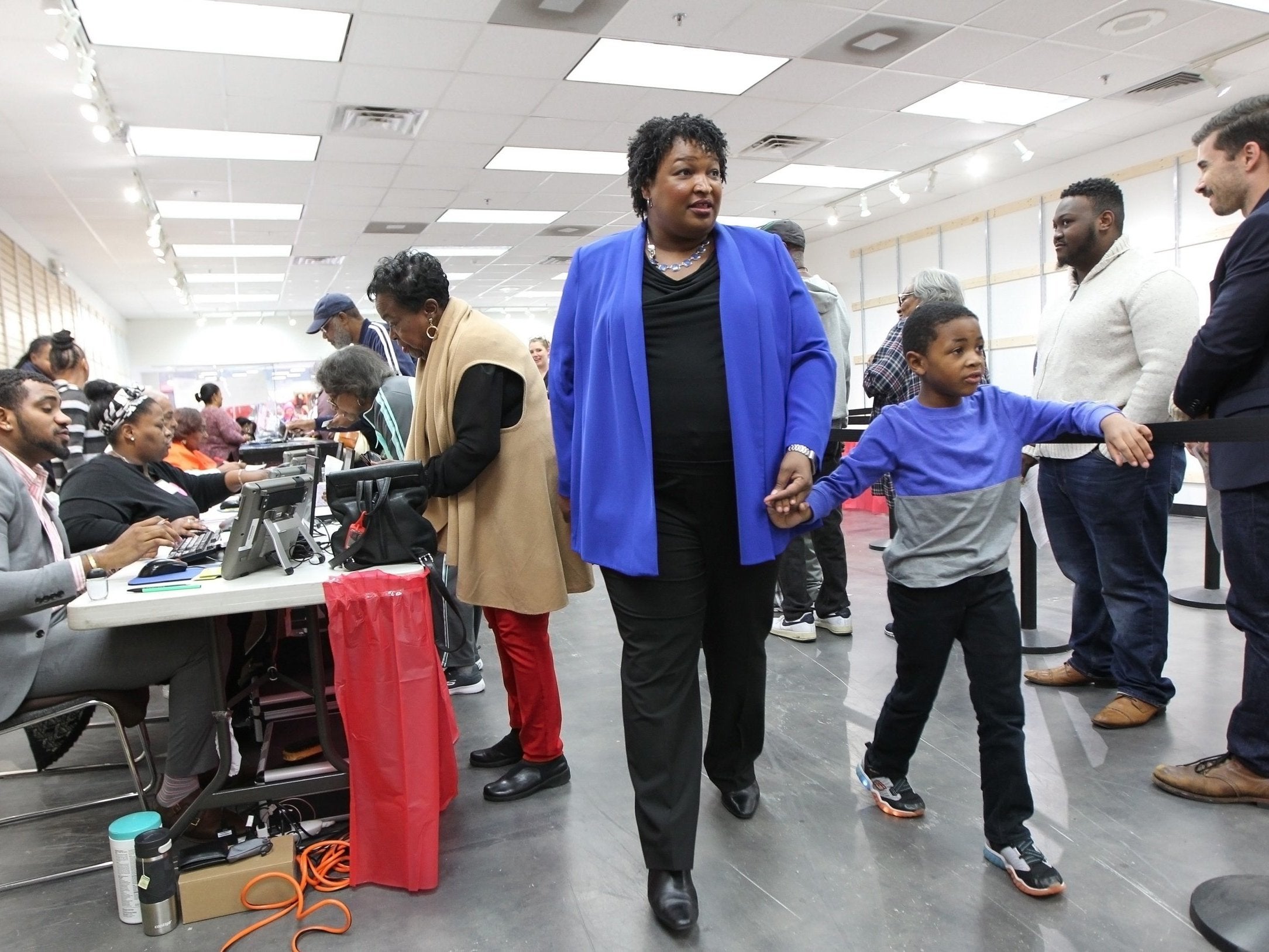
That race was marked by accusations that Mr Kemp, who was secretary of state at the time and therefore in charge of overseeing his own election, had purposely targeted black voters in disproportionate numbers by purging them from registration rolls or flagging them as potentially ineligible to vote.
Ms Abrams has since become a leading public advocate for more federal funding to safeguard the integrity of elections this fall as states prepare to roll out unprecedented vote-by-mail efforts.
Pros
Ms Abrams ran an impressive statewide race in Georgia in 2018 based on turning out voters whom both parties had previously dismissed as unwilling to actually head to the polls on Election Day.
Her marquee policy area — voting rights — resonates strongly with the Democratic base and its most reliable voting bloc: older black women, many of whom have faced suppression efforts in their own lifetimes.
Ms Abrams, who is black, is herself part of that reliably blue demographic, which she has said positions her well to sympathise with their politics.
And while no data has definitively proven vice presidential running mates help boost a ticket’s prospects in the VP candidate’s home state, many Democrats believe Ms Abrams could help Mr Biden flip the once ruby-red Georgia, where some recent polls have shown him ahead of Mr Trump.
Cons
Ms Abrams has never represented a constituency at the federal level. The 89th District she represented in Georgia’s statehouse does not cover even 25 square miles.
Mr Biden would be 78 by the time he would take office in 2021, and he has said his most important qualification for his prospective running mate is the ability to serve as president from day one.
Ms Abrams, who is 46, is the youngest woman on Mr Biden’s list, though her age should not be an issue for him: Barack Obama, Mr Biden’s old boss, was 47 years and 169 days old when he took the oath of office in 2009.
For years, Ms Bass, a former California state Assembly speaker and now a US congresswoman from Southern California’s ethnically very diverse 37th District, has worked behind the scenes on issues that acutely affect minority communities.
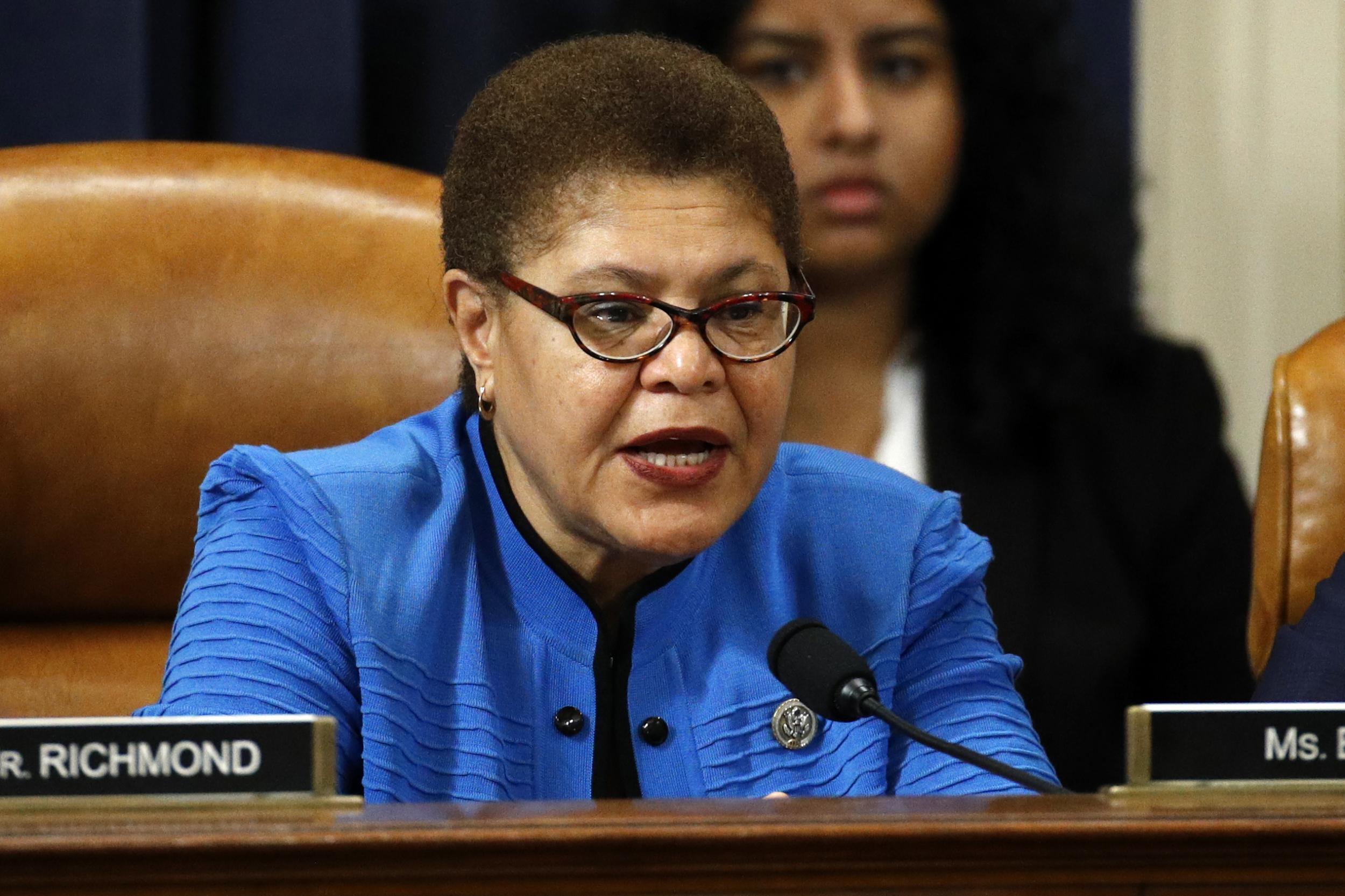
Her political connections at the US Capitol run deep — and directly up to Mr Biden. In January 2019, she took over as chairwoman of the Congressional Black Caucus, which was previously led by Louisiana Congressman Cedric Richmond, Mr Biden’s first selection to be a campaign co-chairman last year.
Pros
Ms Bass, who has a background in medicine, has been a community leader through multiple US health crises.
She witnessed the calamity of the crack cocaine epidemic firsthand as a physician’s assistant treating patients in Los Angeles in the 1980s, a dark period in the city’s history that was an antecedent to the current opioid crisis that has swept middle America.
Ms Bass’ medical career has also provided her valuable insight into the government’s handling of the coronavirus pandemic and the granular needs of health systems across the country, particularly in poor communities.
And as chairwoman of the CBC, she led House Democrats’ policing reform efforts earlier this summer, although her bill stalled out in the Republican-controlled Senate.
Ms Bass’ allies have touted her background and strong demeanour as qualities uniquely befitting the current political moment.
Cons
While Ms Bass has been front-and-centre of House Democrats’s policing reform efforts in the wake of the deaths of Mr Floyd, Ms Taylor, and others, she is largely unknown at the national level.
Two of every three Americans do not know who she is, according to recent polling.
That also means she has not undergone the same scrutiny as other candidates, either by her own party’s voters or by the always-circling Republican opposition researchers.
Ms Bass’s relative anonymity could be a blessing or a curse.
When the field of Democratic candidates was as long as the shortlist of contenders for Joe Biden’s VP, Atlanta mayor Keisha Lance Bottoms – whose run for mayor was supported by endorsements by former candidates Kamala Harris and Cory Booker – had already endorsed the former vice president.
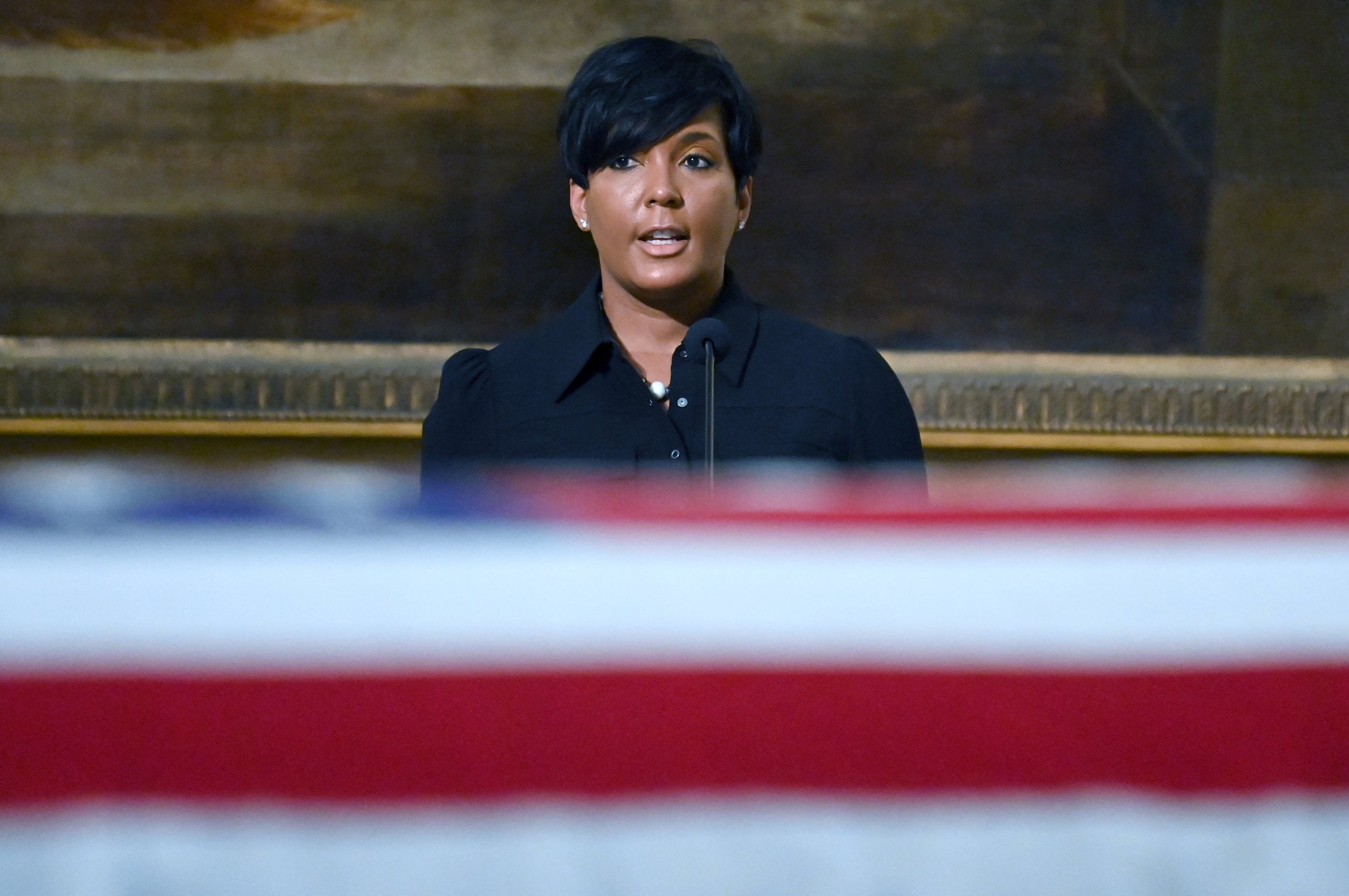
The former judge and City Council member was among American mayors whose national profiles were elevated amid the coronavirus pandemic and Black Lives Matter demonstrations that have gripped the nation.
Following the police killing of Rayshard Brooks and a streak of shootings, Ms Bottoms spoke to the systemic causes that have led to violence while standing defiantly against reports suggesting that the city has fallen into the hands of terrorists.
“Violence is a result of a whole bunch of other stuff that comes before that moment in time before someone opens fire on our streets,” she said. “It should be concerning to all of us who call Atlanta home, and we will continue to focus on it.”
The 50-year-old mother of four, whose nephew was killed by gun violence, has drawn from her city’s history of racist violence and police brutality as well as her personal experience growing up in a middle-class family with a father who was incarcerated when she was young.
She also has imposed strict guidelines and a mask mandate to counter Republican Governor Brian Kemp’s lax response to the coronavirus pandemic.
Pros
As the candidate navigates a policy shift towards significant, national police reform, Ms Bottoms is far from a “defund the police” mayor whose own city’s model for reforms – including dropping cash bail for nonviolent offenders – provides the kind of necessary experience and perspective to align with the Biden camp. She has also made clear that American racism is a larger crisis than more funding for police trainings can adequately address.
Though she hasn’t held federal office, she represents a majority black city of more than 500,000 people within a metropolitan area of 6m, one of the largest in the US. (For comparison: The population of South Bend, Indiana – whose former mayor Pete Buttigieg dropped out of the presidential race after pulling ahead of Mr Biden in early primary states – is 100,000.)
Cons
Bottoms will face intense scrutiny from her home base for a host of controversial local decisions, from an ordinance criminalising panhandling to a recent curfew imposed on protesters.
While she has pushed for policing reform, she told protesters to “go home” and scolded them as protests erupted in the city following the killing of George Floyd: “This is not in the spirit of Martin Luther King Jr. This is chaos. A protest has purpose.”
In just her second term in the US House, the Florida congressman has already secured a place for herself as a favourite of Speaker Nancy Pelosi, whose recommendations go a long way in Washington.
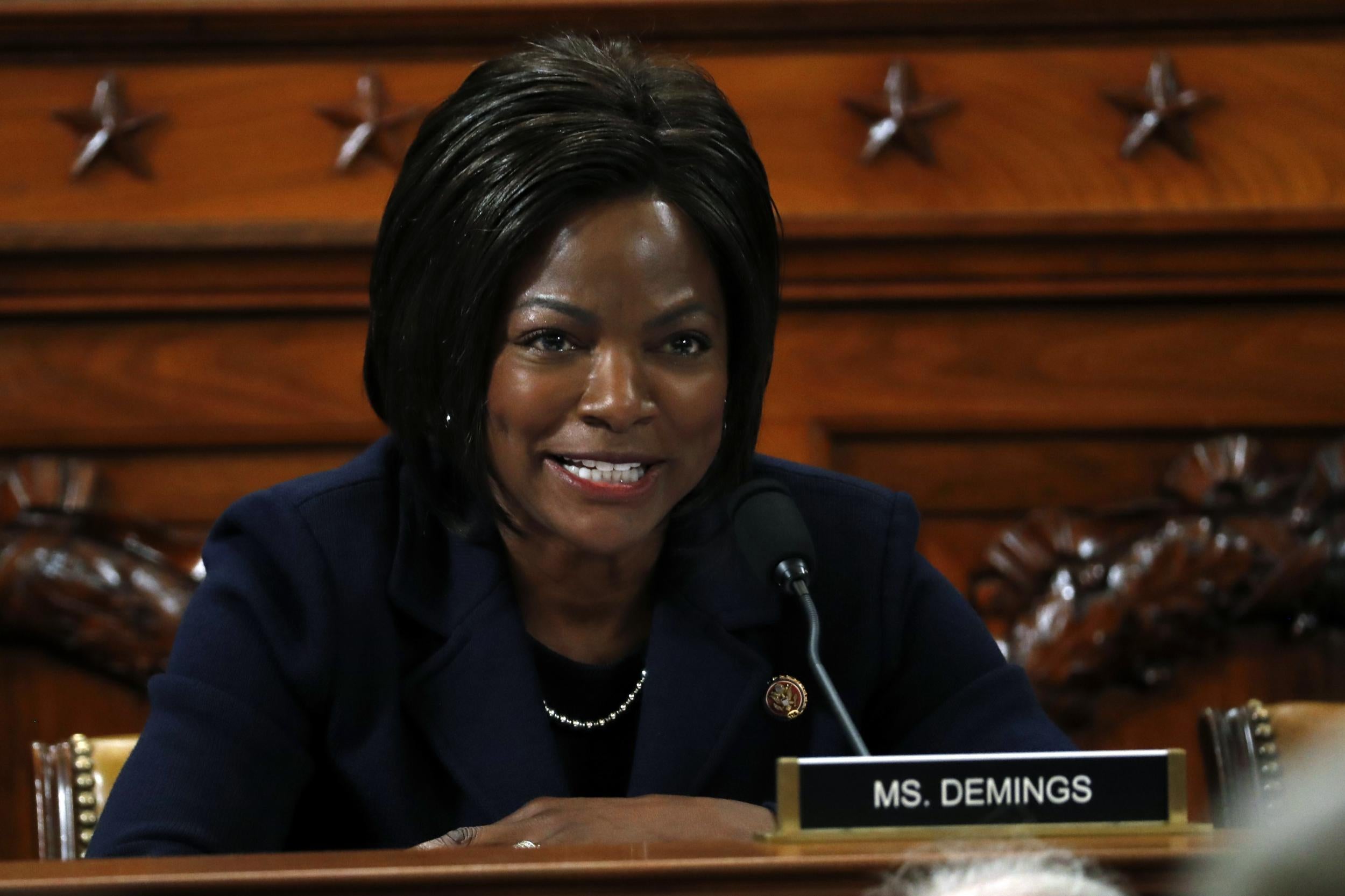
Ms Pelosi picked Ms Demings as one of seven House members to prosecute impeachment articles against Mr Trump’s in the US Senate.
Ms Demings was the only black woman on what was still an historically diverse impeachment team.
Pros
Ms Demings was Orlando’s police chief for four years before running for Congress in 2012 in Florida’s 10th District. She lost that race, as the district, at the time, skewed Republican in voter registration rolls.
Ms Demings soundly defeated Republican Congressman Daniel Webster in a rematch in 2016 with new district boundaries drawn more favourably for Democrats.
She is the only candidate on Mr Trump’s short list from the swing state of Florida, which every victorious presidential candidate has won since 1992.
Her bona fides as a Trump resistance figure are airtight.
As a member of the House Intelligence and Judiciary Committees, she has hounded the president for his alleged corruption and foreign policy decision-making.
A willingness to speak her mind to the press as an early proponent of impeaching Mr Trump despite party leader’s initial hesitations gave her a prominent voice on cable news and in the hallways with newspaper reporters for a member of such little rank.
Cons
Still, Ms Demings has a few things working against her.
For one, she is a former top cop in a political era in which many Democratic voters largely do not trust local police departments to administer to the communities they ostensibly protect and serve.
The resurgence of the Black Lives Matter movement and its focus on police brutality has rendered her law enforcement background a wild card in an election climate where Mr Biden, the frontrunner, is incentivised to play it safe.
She is also a relative unknown who has never run for statewide office. The home-state bump, already a statistically dubious theory, would appear to be even less of a factor with Ms Demings than with other candidates.
A veteran of the US Army herself, the Illinois senator has carved out a political niche as a Democratic champion of the armed services.

She is also a self-proclaimed team player, batting away questions about her vice presidential candidacy by claiming she’d serve Mr Biden in any way he asked her to, including “sweeping the floors at the VA”.
Ms Duckworth served in the Obama administration’s Veterans Affairs Department from 2009 to 2011 after nearly four years as director of the Illinois VA.
Pros
Ms Duckworth has carefully cultivated a political image of distinct dualities.
Born in Bangkok to a Thai-Chinese mother, her father, a former US Marine and Army officer, could trace his lineage back to the American Revolution.
On the one hand, she’s a valorous, no-nonsense war hero who lost both legs in 2004 when Iraqi insurgents shot down her helicopter with a rocket-propelled grenade (RPG). On the other hand, she’s a symbol of womanhood and the progress of women in politics, becoming the first senator to give birth while in office.
Democratic strategists believe her patriotism is unassailable, something that could rankle conservative icons intent on tearing down Mr Biden’s campaign and policy platform as anti-American.
In fact, it already has.
Ms Duckworth, who navigates the halls of the US Capitol from a wheelchair, wheeled right into the cable news political fracas in June by inviting Fox News host Tucker Carlson to “walk a mile” in her prosthetic legs after he called her a “coward” for refusing to say she whether or not she supports removing statues honouring George Washington.
Cons
The dispute with Mr Carlson may have been avoided altogether if Ms Duckworth had initially better explained her position on the removal of memorabilia of the first US president.
While she does not support purging the US of Washington’s legacy over his enslavement of black Americans, she is open to a “national dialogue”, she later clarified in a New York Times op-ed.
The episode underscored how much of an unknown Ms Duckworth is in the realm of public speaking, having never run for national office.
Democratic strategists are unsure how she would fare on a debate stage opposite vice president Mike Pence, whose performance against Virginia senator Tim Kaine in 2016 earned high praise and helped — at least for a few days afterwards — placate concerns about the tone of the Trump campaign.
The New Mexico governor is the only Latina left on Mr Biden’s list, but she is the only woman with executive governing experience.
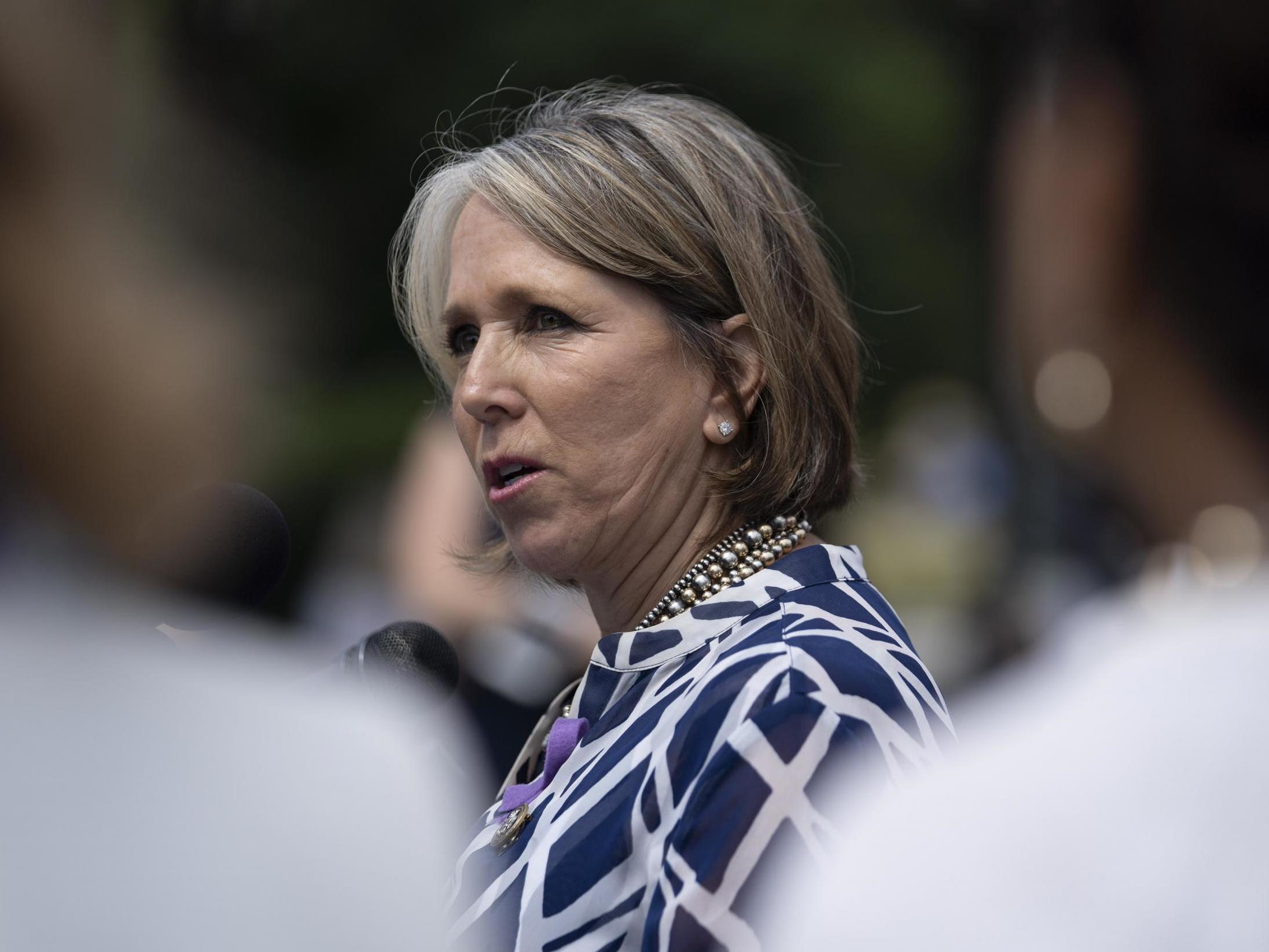
She also brings first-hand knowledge to the table about how states are dealing with the coronavirus pandemic, which, along with anti-police brutality protests, has dominated the political landscape since March.
With a background in health administration, fewer public figures are better prepared to take on a leading role to combat Covid-19.
Pros
Ms Lujan Grisham is perhaps the best-positioned vice presidential prospect to bring expertise on how to handle the coronavirus pandemic and its devastating effects on older Americans.
Before running for Congress in 2012, where she spent six years as a House member, Ms Lujan Grisham served as New Mexico’s Secretary of Health from 2004 to 2007.
Before that, she was the director of the state’s Agency on Ageing.
Perhaps that experience is why she was one of the first governors in the country to shut down her state’s economy and declare the coronavirus crisis a public emergency on 11 March, when health officials in New Mexico had only confirmed four cases of Covid-19 within its borders.
She was also a widely popular chairwoman of the Congressional Hispanic Caucus from 2017 to 2019, making her a favourite choice for the Democratic ticket among party operatives who worry Mr Biden’s support among Latinos is lagging behind where it should be.
Cons
While Ms Lujan Grisham took several decisive steps to mitigate the coronavirus crisis before most other governors and has rolled out one of the nation’s most efficient testing regimes, her state hasn’t fared much better than others, statistically speaking.
New Mexicans have died from the virus at roughly the same rate as Alabamans and South Carolinians.
If she were to leave Santa Fe to join Mr Biden’s ticket, some conservative commentators would surely accuse her of abandoning her state at a time when continuity in leadership is needed most.
Ms Lujan Grisham also does not have the national profile of some of the other frontrunners for the ticket. Like Ms Bass and Ms Demings, roughly two of every three Americans don’t even know who she is.
Kamala Harris
When it became clear Mr Biden had all but secured the Democratic nomination over Vermont Senator Bernie Sanders this spring, Ms Harris’ political fortunes quickly rebounded from her own failed presidential bid.
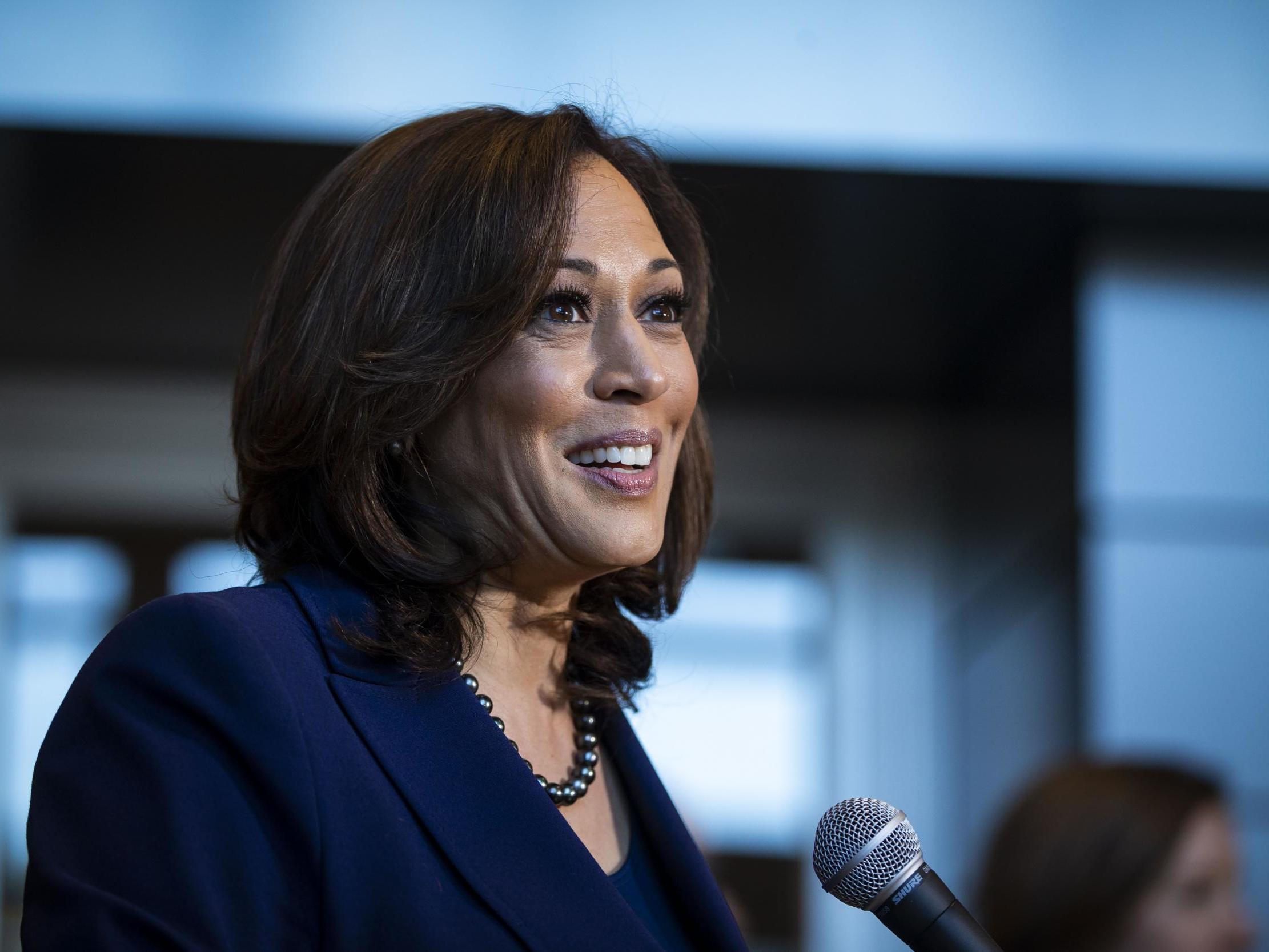
The California Senator and former state attorney general is widely considered Mr Biden’s leading choice to be his running mate.
She was a friend of the vice president’s late son Beau Biden and is a staunch ally of Mr Obama, who once called her “the best looking attorney general” in the country. (The president later called Ms Harris to apologise, as several critics decried the comment for diminishing her professional accomplishments.)
A former presidential candidate herself, Ms Harris is largely a known commodity.
Pros
Ms Harris is in many ways the embodiment of the so-called American Dream: the mixed-race daughter of Jamaican (her father) and Indian (her mother) immigrants whose children have capitalised on the opportunities presented to them in their new home country.
She boasts by far the highest-ranking experience of any other black candidates for Mr Biden’s ticket, serving at the statewide level in two separate offices — state attorney general and US senator — in the largest state in the country.
Democratic operatives know she’s game for a spirited on-stage debate after her performances in the 2020 Democratic primaries.
She has also been one of Democrats’ most prominent attack dogs in the Senate in going after Mr Trump. She delivered a rousing speech in opposition to Supreme Court Justice Brett Kavanaugh’s confirmation in 2018.
If Mr Biden’s No 1 criterion is ability to step in as president on a moment’s notice, he’d be hard-pressed to find a woman with a better resume than Ms Harris.
Cons
Ms Harris rubbed several Democratic power players the wrong way with her aggressive attacks against Mr Biden at the first Democratic debate last summer.
“I know you’re not a racist,” Ms Harris said, before tying Mr Biden’s legacy in the Senate to segregationists from the South such as Senators Strom Thurmond of South Carolina and James Eastland of Mississippi and questioning his past statements about federally-enforced busing to integrate school systems.
Mr Trump — who has battled attack ads this cycle featuring video clips from 2015 of his allies in the Senate, such as Senator Lindsey Graham, questioning his competency — would be all too happy to exploit and showcase Ms Harris’ past comments about Mr Biden.
Progressives within her own party have picked apart Ms Harris’ record as a state prosecutor and California attorney general, claiming her policies were too harsh on communities of colour.
A revival of such debates could threaten Mr Biden’s support from the leftward-leaning portion of his party’s base.
While Ms Rice has never held elected office, she has advised several Democratic presidential campaigns, successful and unsuccessful.
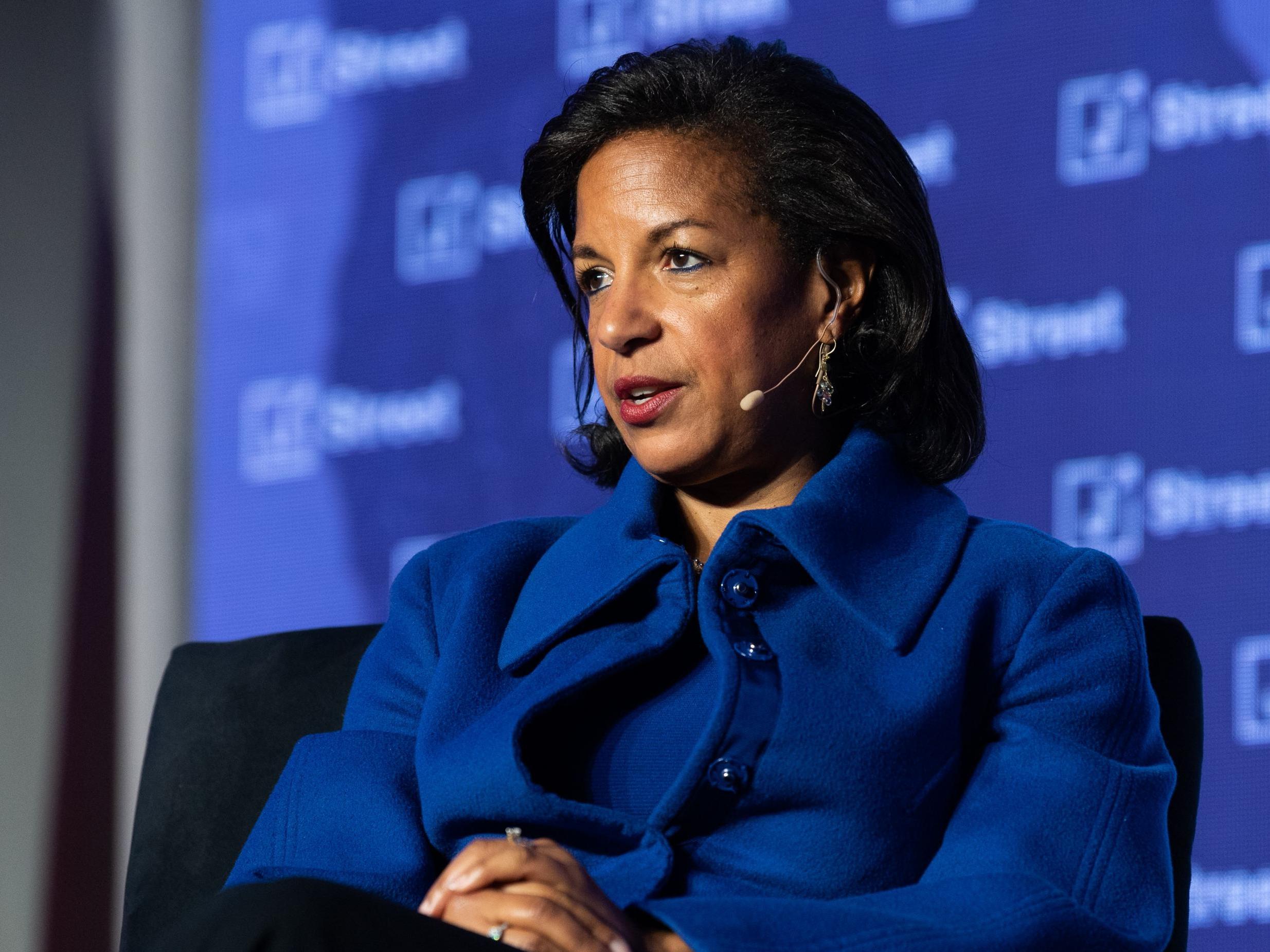
During the Obama administration, Ms Rice served as Ambassador to the United Nations from 2009 to 2013 and as national security adviser from 2013 to the end of his second term.
She also brings some experience to the table as it regards the coronavirus crisis: As national security adviser, she was part of Mr Obama’s precautionary pandemic response team.
Pros
Ms Rice has the most impressive foreign policy resume of any black Democrat in history, period.
She has spent the most years working at the White House of any other woman on this list, endowing her intimate knowledge of how to effectively operate within the labyrinthine US bureaucracy.
Mr Biden knows her well from their time in Mr Obama’s White House, not a trait to be overlooked for a presidential nominee who is looking for someone who is “simpatico” with his vision for the country.
By virtue of never running for elected office herself, journalists have seldom forced Ms Rice to publicly reveal her positions on domestic policy, helping her synchronise with Mr Biden’s platform free from accusations of hypocrisy and flip-flopping.
Cons
While partisan shades will colour whether voters believe Mr Trump has actually “drained the swamp” in Washington or just replaced the previously existing one with his own version, Ms Rice is exactly the kind of DC reptile the president frequently bemoans.
As US ambassador to the United Nations during the attacks on the American consulate in Benghazi, Ms Rice subsequently sat for five TV interviews to discuss the episode and the US response.
She later faced a string of accusations that she had intentionally misled the public about the nature of the attack on the Benghazi compound, and withdrew her name from consideration to succeed Hillary Clinton as secretary of state, even though, she maintains to this day, she was relaying what US intelligence knew about the attack at the time.
Presidential nominees often choose running mates whose areas of expertise will complement their own and cover for their deficiencies. Mr Biden, who was the top Democrat on the Senate Foreign Relations Committee from 2001 to 2009, considers himself an expert on foreign policy, overlapping with Ms Rice’s skill set.
The former Harvard Law School professor ascended to the Senate on the back of her pro-regulation, anti-Wall Street message amid the Great Recession in the late 2000s and early 2010s.
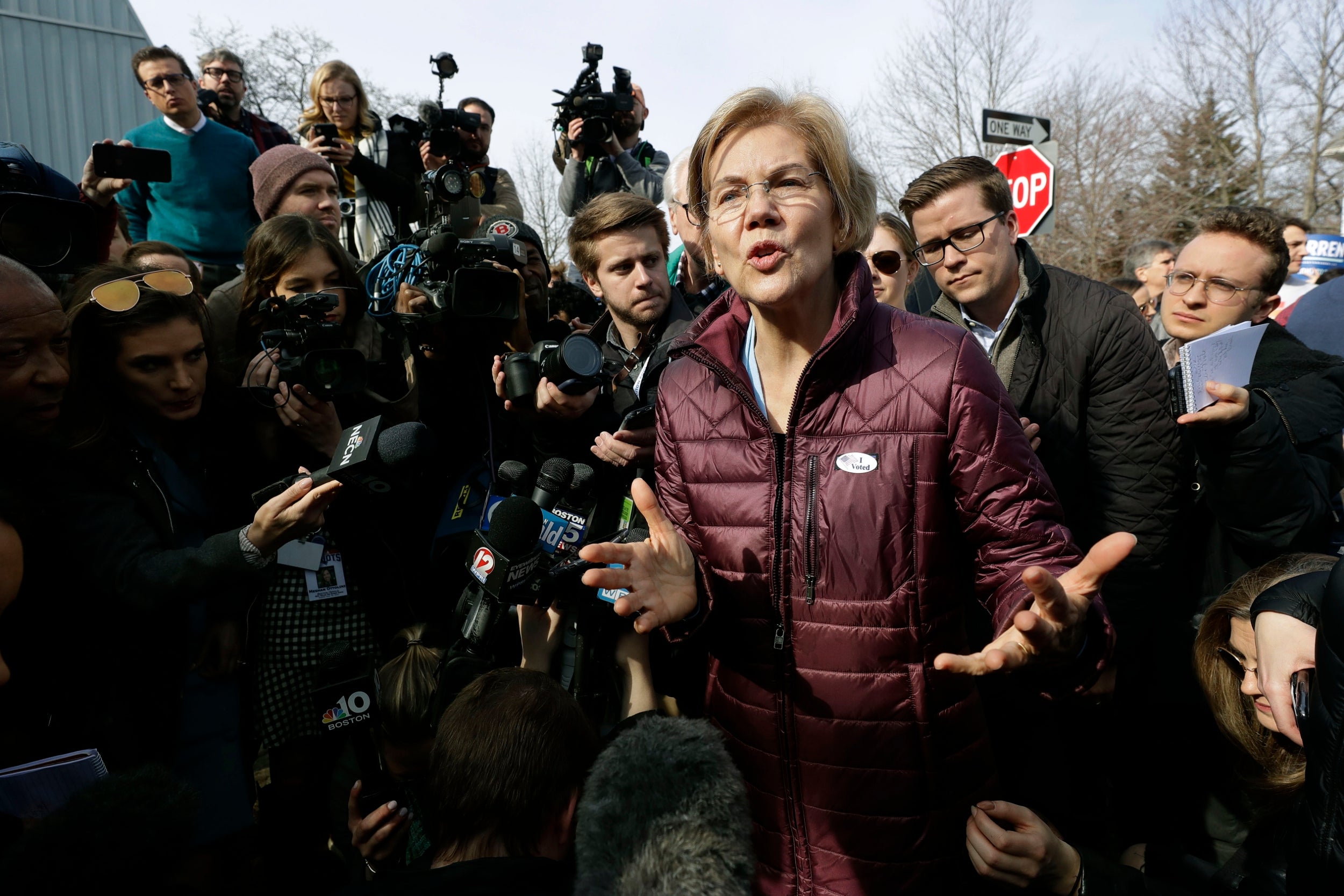
For a brief time last year, that same policy platform — often described as “populist,” but more generally hailed as “progressive” — helped Ms Warren to the front of the Democratic presidential primary pack in early-voting states such as Iowa and New Hampshire before she later faltered.
She helped Mr Obama establish the Consumer Financial Protection Bureau that monitors the transactions and operations of the financial institutions whose predatory practices are widely tagged with precipitating the financial collapse at the end of George W Bush’s presidency in 2008.
Asked about the Occupy Wall Street movement in 2011, Ms Warren has claimed credit for practically creating the movement.
“I created much of the intellectual foundation for what they do,” she said at the time.
Pros
The Massachusetts senator won praise as a whip-smart debater during the 2020 primary season, no surprise given her background as a legal lecturer at Harvard.
She, along with Mr Sanders, has pulled Mr Biden to the left on a host of issues, from how to cancel and consolidate student loan debt to her plan to replenish the Social Security trust fund that is so important for ageing voters.
Ms Warren is a liberal policy wonk with the gift of articulation to match. She is more than capable of putting Mr Pence on his heels in a debate.
The most stalwart progressive of anyone on Mr Biden’s short list, many Democratic operatives see a Warren vice presidency as a potential carrot to dangle in front of liberal voters who backed Mr Sanders in the primaries but may not have been inclined to head to the polls for Mr Biden in November.
Cons
While Ms Warren has taken unflinchingly progressive stances on race relations and policing, she is a 71-year-old white woman on a list of otherwise generationally and racially diverse vice presidential candidates.
She is also a potential bogey woman for Independent swing voters who cannot stomach her liberal persuasions.
She has diverged from Mr Biden, a moderate, on several key issues, from climate change to free trade agreements. Their foreign policies are not in lockstep. Mr Biden, in many ways, personifies the old guard bipartisan foreign policy establishment, something Ms Warren has fought her entire career to tear down.
And although she maintains a serious outward bearing, she is not immune from the president’s non-serious personal digs.
Mr Trump has lampooned Ms Warren for previously claiming Native American roots. He calls her “Pocahontas” after the famed Native American heroine, a rhetorical tactic his critics have decried as racist. The president has dismissed Ms Warren’s professional accomplishments on the unproven allegation that she only got to where she is by gaming the affirmative action system.
Ms Warren, like Ms Harris, is a known commodity, though that isn’t always necessarily a good thing. Forty-three per cent of the public views her unfavourably, compared to 36 per cent who see her favourably, recent polling has found.
That ratio is bound to shift if she ties her political image to Mr Biden’s by joining his ticket, but it would be something the Biden campaign must address.
Recent polls have widened Joe Biden’s lead in Michigan, a battleground that Donald Trump surprisingly won in 2016. First-term governor Gretchen Whitmer emerged as an early counterpoint to the administration’s response to the coronavirus pandemic, after giving the Democratic response to his 2020 State of the Union and featuring in his Twitter feed after she had demanded the administration beef up supplies of protective gear and testing.
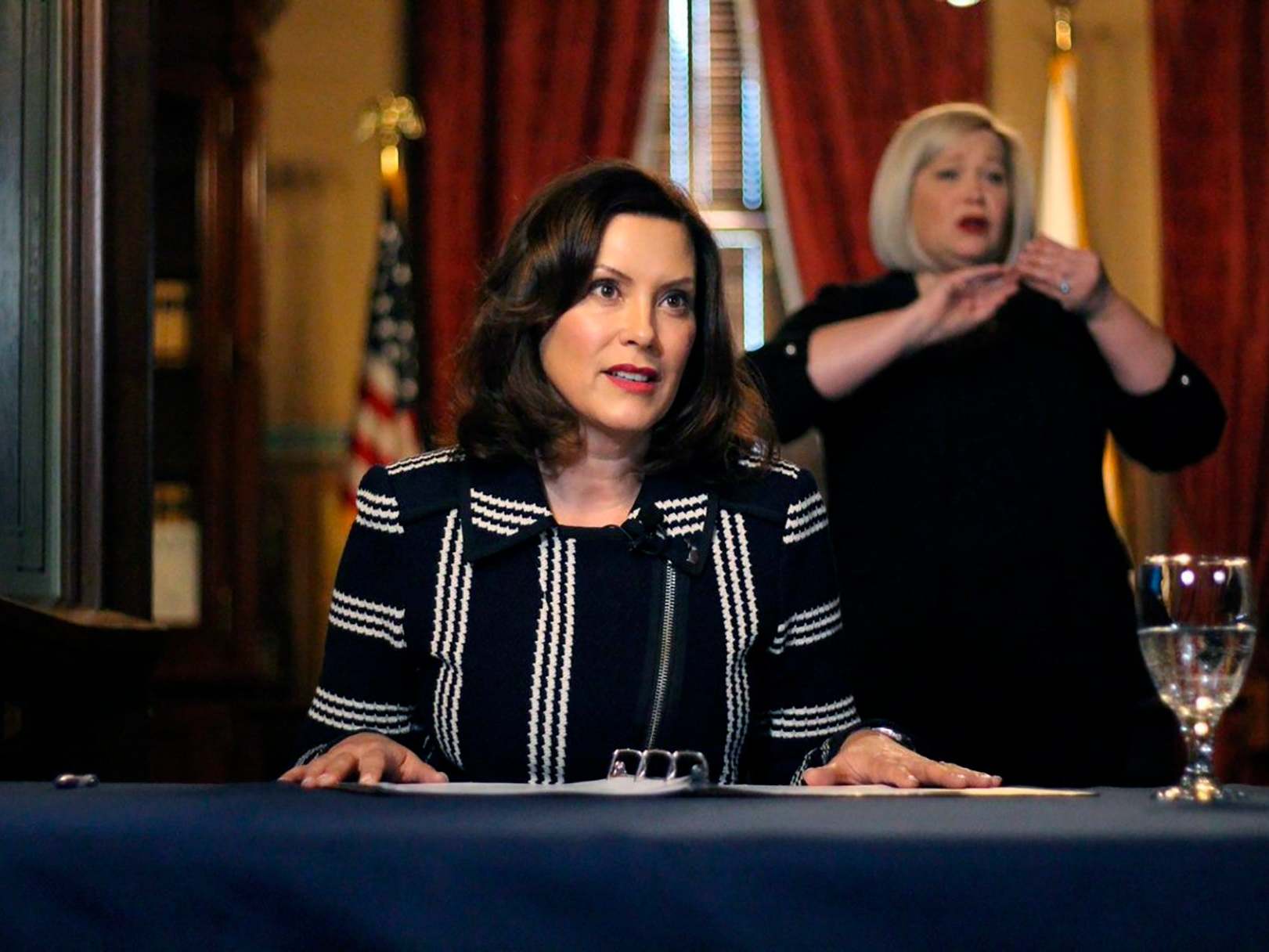
His supporters swarmed the state’s capitol opposing her stay-at-home measures as the deadly outbreak spread across the US.
The 48-year-old mother of two had previously served in the state’s House of Representatives and Senate, during which she spoke on the state’s capitol floor about her experience with sexual assault in 2013. She handily defeated the state’s attorney general for governor in 2018, pledging to fix roads and address the water crisis that continues to plague Flint.
But the state bore the brunt of the president’s trade war and auto worker strikes and industry cuts within her first year. At the onset of the outbreak, she became the president’s early foil, “the woman in Michigan” undermining his rosy assessment of a public health crisis that continues to spiral.
Months after he dismissed mask guidelines, he now promotes wearing them. In a recent New York Times op-ed, Whitmer called for a national mandate.
Pros
Michigan has become a valuable electoral stage. Mr Sanders won the state’s Democratic primary in 2016, and Hillary Clinton’s loss in the state gave Trump – who relied on a working-class base of support – a significant electoral college boost. Biden has recently called the state his “key” in November. Whitmer could give the campaign a worthy home state advantage.
Gretchen Whitmer is not Bernie Sanders, though recent polling in the state shows broad support for the governor. Sixty per cent of respondents in a June survey from EPIC-MRA approved of her handling of the coronavirus, and nearly 60 per cent agreed with her decision to impose a stay-at-home order. (Another 5 per cent said it didn’t go far enough.)
Cons
Whitmer is a white moderate, and the campaign is increasingly looking for leadership among black women in the wake of widespread protests against racist violence.
Like any state- or local-level candidate, she’ll be heavily scrutinised by the people who know her well. Though liberal-leaning residents and pundits applaud her handling of the coronavirus and her persistent criticisms of the administration’s shortcomings, she has struggled to live up to her campaign pledge to “fix the damn roads” and has lost legislative battles against Republicans over the state’s budget and deficit shortfalls.

Join our commenting forum
Join thought-provoking conversations, follow other Independent readers and see their replies
Comments